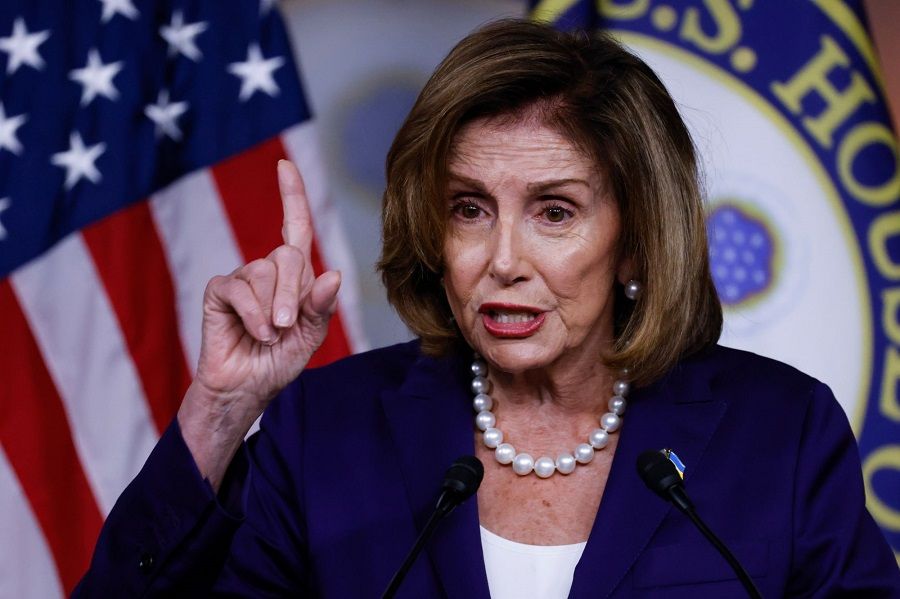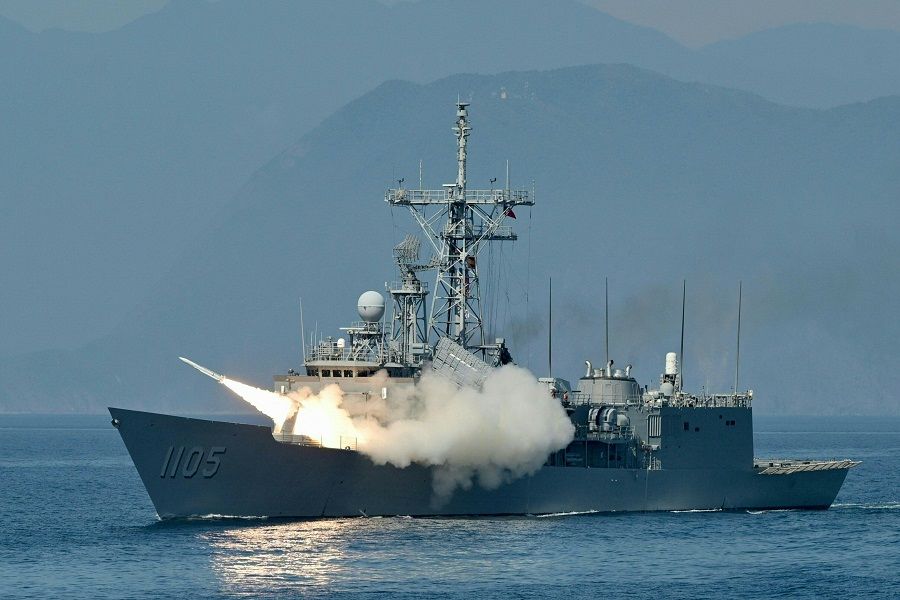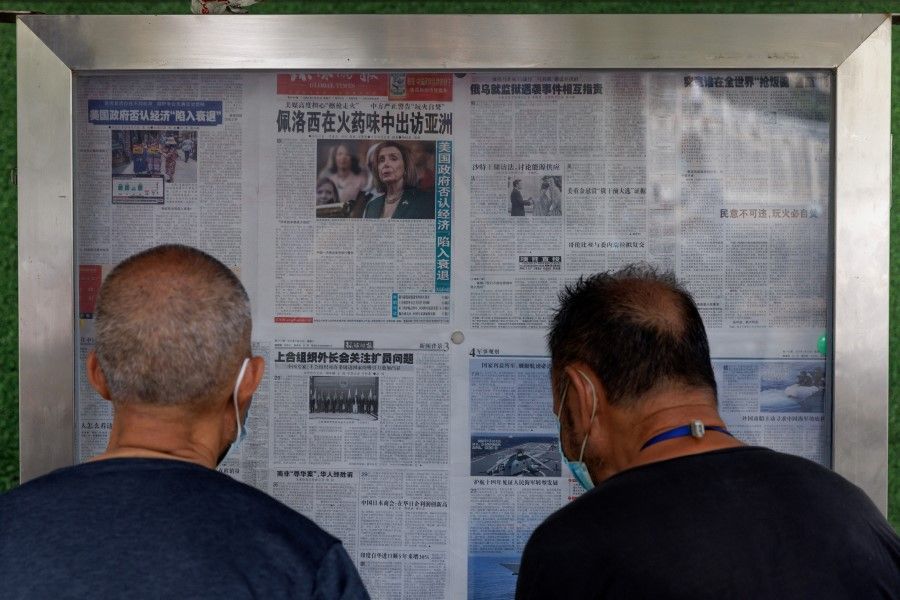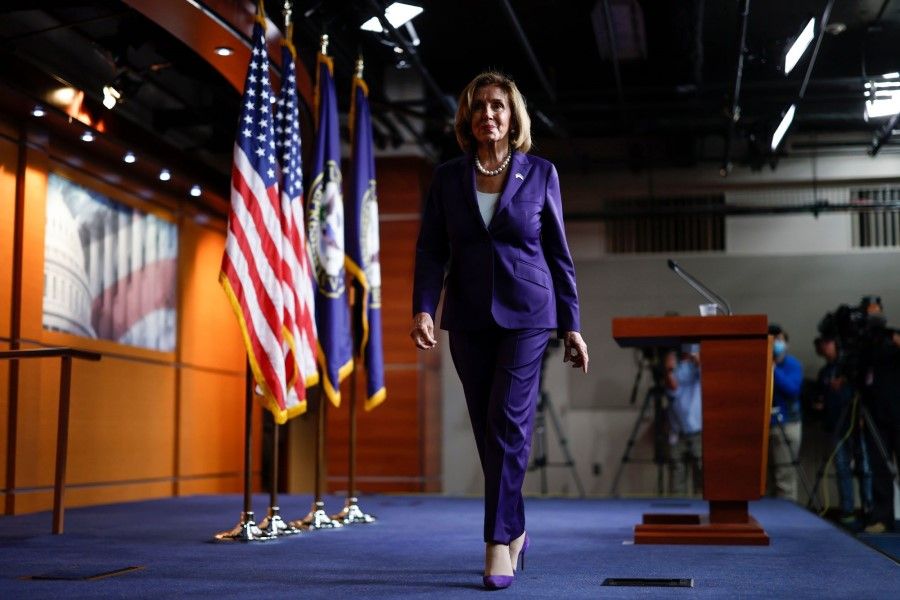Taiwan: A runway for great powers to flex their muscles?

Because of a possible visit by number three top politician and Speaker of the US House of Representatives Nancy Pelosi, which could have triggered a direct military conflict between China and the US, Taiwan was thrust into the spotlight.
Amid the political-military tug of war between China and the US, Taiwan was relegated to a supporting actor role with little say on the visit. It has in fact become a runway for the great powers to flex their muscles.
China's stern warnings
Following Chinese President Xi Jinping and US President Joe Biden's phone call on 28 July, 82-year-old Pelosi embarked on her tour of four Asian countries on 1 August in Singapore. Pelosi's office announced on 31 July that she would be leading a congressional delegation to the region including stops in Singapore, Malaysia, South Korea and Japan. It made no mention of Taiwan.
However, since the news of Pelosi's potential visit to Taiwan was made known two weeks ago, China's foreign ministry has issued five stern warnings, emphasising that it was "fully prepared for any eventuality". Its defence ministry also warned that the People's Liberation Army would not "sit idly by".
"... the current situation is not as tense as the three previous Taiwan Strait crises, and the biggest difference is Taiwan's weakening role." - Lu Yeh-Chung, professor from the Department of Diplomacy at Taiwan's National Chengchi University

The US military is also prepared, sending its aircraft carrier group en route to the Taiwan Strait. General Mark A. Milley, chairman of the Joint Chiefs of Staff and the US's highest-ranking military officer, said, "If there's a decision made that Speaker Pelosi or anyone else is going to travel and they asked for military support, we will do what is necessary to ensure a safe conduct of their visit."
While the Chinese and US militaries have not been explicit about the actions that they would take, both sides are taking a hard line amid an escalating situation. Given the heightened risk of a military conflict in the Taiwan Strait, MIT political science professor Taylor Fravel has warned of a "Fourth Taiwan Strait crisis" if the situation does not let up.
Taiwan's diminishing role
However, Lu Yeh-Chung, a professor from the Department of Diplomacy at Taiwan's National Chengchi University, told Zaobao that the current situation is not as tense as the three previous Taiwan Strait crises, and the biggest difference is Taiwan's weakening role.
Lu said that the 1954-1955 and 1958 Taiwan Strait crises were clearly the extension of the civil war between the Kuomintang and the Chinese Communist Party, and were military conflicts between both sides of the Taiwan Strait. Meanwhile, the US played a critical role in the 1995-1996 Taiwan Strait Crisis, which was triggered by then Taiwan president Lee Teng-hui's visit to the US.
... [Taiwan] is often bypassed and is unable to assert itself on issues that concern its own peace and security.

In the event of a crisis triggered by Pelosi's visit to Taiwan, it would mainly be centred around the China-US rivalry - Taiwan would not be a prominent player.
Lu also pointed out that despite being a direct party with a stake in the peace of the Taiwan Strait, in recent years, Taiwan has become less and less of a player in the US-China competition. While it has always emphasised self-rule and avoiding trouble, it is often bypassed and is unable to assert itself on issues that concern its own peace and security.
... the situation could end up being a "political drama" where both sides show a tough stance and jostle without losing their heads.
Show of political bravado
While it is not known if Pelosi would eventually visit Taiwan, Lu believes that the existing direct communication channels between China and US militaries would help mitigate the risk. Instead, the situation could end up being a "political drama" where both sides show a tough stance and jostle without losing their heads.
Lu added that with the US midterm elections, China's 20th Party Congress, and the Taiwan Democratic Progressive Party government's "nine in one" local elections all happening this year, putting on such a show of political bravado would help cement the domestic authority of those in office.

In a recent interview with Chinese state media, political scientist Zheng Yongnian said that the US might be using Pelosi's visit to Taiwan to engage in a calculated strategic game - a weak response from China would naturally be good for the US; meanwhile, a strong response amid the strong populist anti-China sentiment in the US would validate the Democrats' political assessment of China and help drive their political agenda.
Zheng said that if a small conflict arises between China and the US, Washington could take the opportunity to push for an "Asian NATO", which would be a serious test of the political wisdom and courage of China's leaders.
To that prospect, Lu believes that China's leaders can think of the bigger picture in considering China-US and cross-strait relations; if they can show sincerity in maintaining peace, and focus on mutual benefit and tolerance, there is a chance of gradually dispelling the populist anti-China sentiment in the US.
A stage exit
So how can Pelosi's visit to Taiwan give both sides what they need without losing face?
Lu has deduced two scenarios among the many possibilities. First, a US delegation that excludes Pelosi visits Taiwan, and she makes strong comments about China during visits to other countries.
Another scenario is that Pelosi posts a tweet about her flight route and satellite image as her aircraft flies over Taiwan's air defence identification zone. She can indicate that she "visited" Taiwan by flying over its airspace without actually landing in Taiwan. The US would maintain its tough stance while giving the Chinese and US leaders a way out.

Will this be a political show or another crisis in the Taiwan Strait? We will know very soon.
When the actors and audience are all gone, Taiwan, the keeper of the runway, will be left to clean up and brace itself for the routine of mainland Chinese aircraft circling the island, and US arms sales to "support Taiwan".
Related: Has the US shifted its position on Taiwan, again? | Both sides of the Taiwan Strait fear imminent war | Biden's 'gaffe' on Taiwan reflects changing status quo in the Taiwan Strait | If China strikes Taiwan, can it bear the punishment from the US and its allies? | Why the status quo in the Taiwan Strait is quietly changing | Taiwan is America's best asset against China, but for how long? | Will the US abandon Taiwan? | Why it's right that US policy on Taiwan has not changed | Taiwan's unequal status in US-Taiwan trade talks
